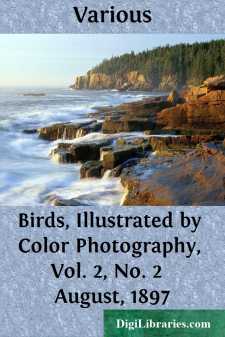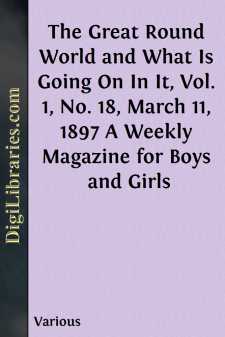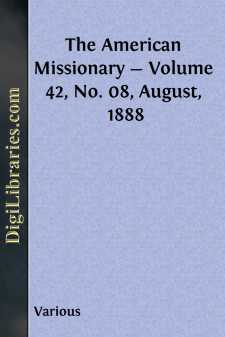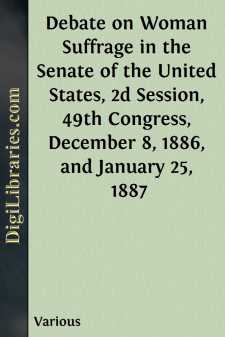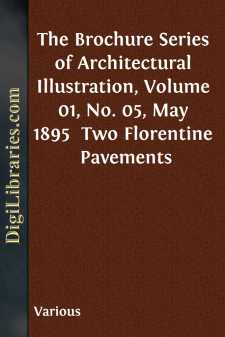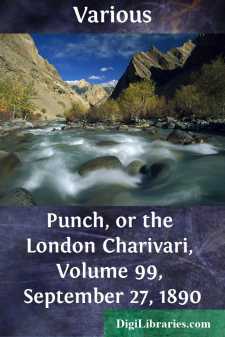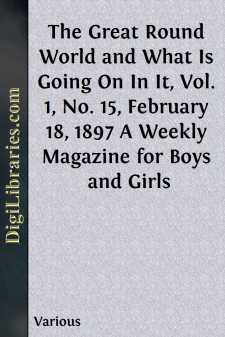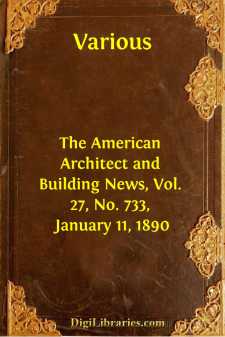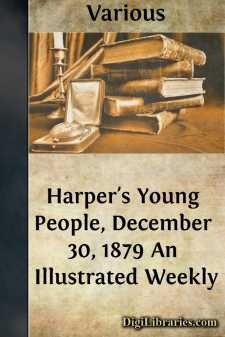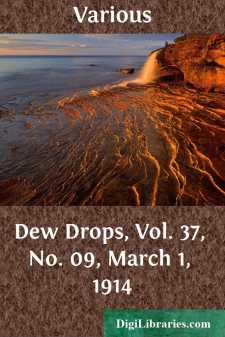Categories
- Antiques & Collectibles 13
- Architecture 36
- Art 48
- Bibles 22
- Biography & Autobiography 813
- Body, Mind & Spirit 142
- Business & Economics 28
- Children's Books 16
- Children's Fiction 13
- Computers 4
- Cooking 94
- Crafts & Hobbies 4
- Drama 346
- Education 46
- Family & Relationships 57
- Fiction 11829
- Games 19
- Gardening 17
- Health & Fitness 34
- History 1377
- House & Home 1
- Humor 147
- Juvenile Fiction 1873
- Juvenile Nonfiction 202
- Language Arts & Disciplines 88
- Law 16
- Literary Collections 686
- Literary Criticism 179
- Mathematics 13
- Medical 41
- Music 40
- Nature 179
- Non-Classifiable 1768
- Performing Arts 7
- Periodicals 1453
- Philosophy 64
- Photography 2
- Poetry 896
- Political Science 203
- Psychology 42
- Reference 154
- Religion 513
- Science 126
- Self-Help 84
- Social Science 81
- Sports & Recreation 34
- Study Aids 3
- Technology & Engineering 59
- Transportation 23
- Travel 463
- True Crime 29
Sort by:
by:
Various
BIRD SONG. E made several early morning excursions into the woods and fields during the month of June, and were abundantly rewarded in many ways—by beholding the gracious awakening of Nature in her various forms, kissed into renewed activity by the radiance of morn; by the sweet smelling air filled with the perfume of a multitude of opening flowers which had drunk again the dew of heaven; by the...
more...
by:
Various
There is startling news from Crete. Greece has openly defied the warning of the Powers, and has declared her intention of assisting the little island, and freeing her from the Turkish rule. All Europe is ringing with the spirited reply sent by Greece to the demand that she should submit to the wishes of Europe, and give up her warlike intentions toward Turkey. This reply was short and to the point. It...
more...
by:
Various
FORM OF A BEQUEST. "I bequeath to my executor (or executors) the sum of —— dollars, in trust, to pay the same in —— days after my decease to the person who, when the same is payable, shall act as Treasurer of the 'American Missionary Association,' of New York City, to be applied, under the direction of the Executive Committee of the Association, to its charitable uses and...
more...
by:
Various
Wednesday, December 8, 1886. On the joint resolution (S.R. 5) proposing an amendment to the Constitution of the United States extending the right of suffrage to women. Mr. BLAIR said: Mr. PRESIDENT: I ask the Senate to proceed to the consideration of Order of Business 122, being the joint resolution (S.R. 5) proposing an amendment to the Constitution of the United States extending the right of suffrage...
more...
by:
Various
TWO FLORENTINE PAVEMENTS. The church of San Miniato al Monte, just outside the walls southeast of Florence, and the Baptistery, or church of San Giovanni Battista, in Florence, are among the finest examples of the Tuscan Romanesque style, and both probably date from about the same time—the early part of the twelfth century—although the date of San Miniato has until recently been referred several...
more...
by:
Various
MODERN TYPES. (By Mr. Punch's Own Type Writer.) No. XIX.—THE SERVANT OF SOCIETY. The Servant of Society is one who, having in early life abdicated every claim to independent thought or action, is content to attach himself to the skirts and coat-tails of the great, and to exist for a long time as a mere appendage in mansions selected by the unerring instinct of a professional tuft-hunter. It is...
more...
by:
Various
I take pleasure in announcing that I have purchased the entire subscription list and good will of Current Events, and offer you in its stead The Great Round World, a weekly newspaper for boys and girls. You will receive one number of The Great Round World for each number of Current Events due you on your subscription. I make the special offer, to send you The Great Round World every week until December...
more...
by:
Various
CIVIL AND DOMESTIC ARCHITECTURE.—I. The term Civil and Domestic Architecture includes all public and private edifices, that is to say: honorary monuments, such as triumphal arches and tombs; buildings for the instruction of the public, such as museums, libraries and schools; houses for public amusements, as theatres, amphitheatres and circuses; structures for public service, as city-halls,...
more...
by:
Various
From the quaint old farm-house, nestling warmly'Neath its overhanging thatch of snow,Out into the moonlight troop the children,Filling all the air with music as they go,Gliding, sliding,Down the hill,Never mindingCold nor chill,O'er the silveredMoon-lit snow,Swift as arrowFrom the bow,With a rushOf mad delightThrough the crisp airOf the night,Speeding far outO'er the plain,Trudging...
more...
by:
Various
"May we go, mamma? Oh, do say yes. Please say yes." Lilian and her brother Earl were invited to a children's lawn party, and, as they were not different from most other children, they were very anxious to attend. "Lilian may go, but I am afraid to trust Earl," said mamma. "There will certainly be ice cream and berries, cake and lemonade, and you know what the doctor said, Earl....
more...


